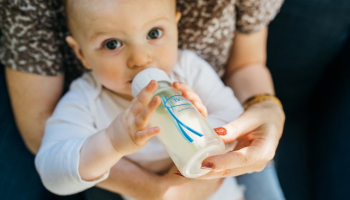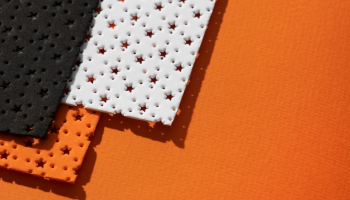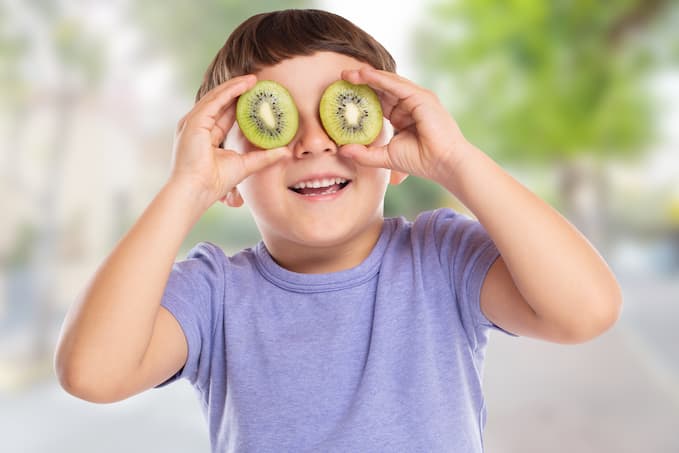
Kiwi is a nutrient-rich fruit that is popular around the world. It is known for its sweet and tangy taste, and is often used in smoothies, salads, and desserts. However, when it comes to feeding kiwi to babies, parents often have concerns about whether it is safe for their little ones to consume. In this article, we will explore whether babies can have kiwi and what precautions parents should take.
Understanding the Kiwi Fruit
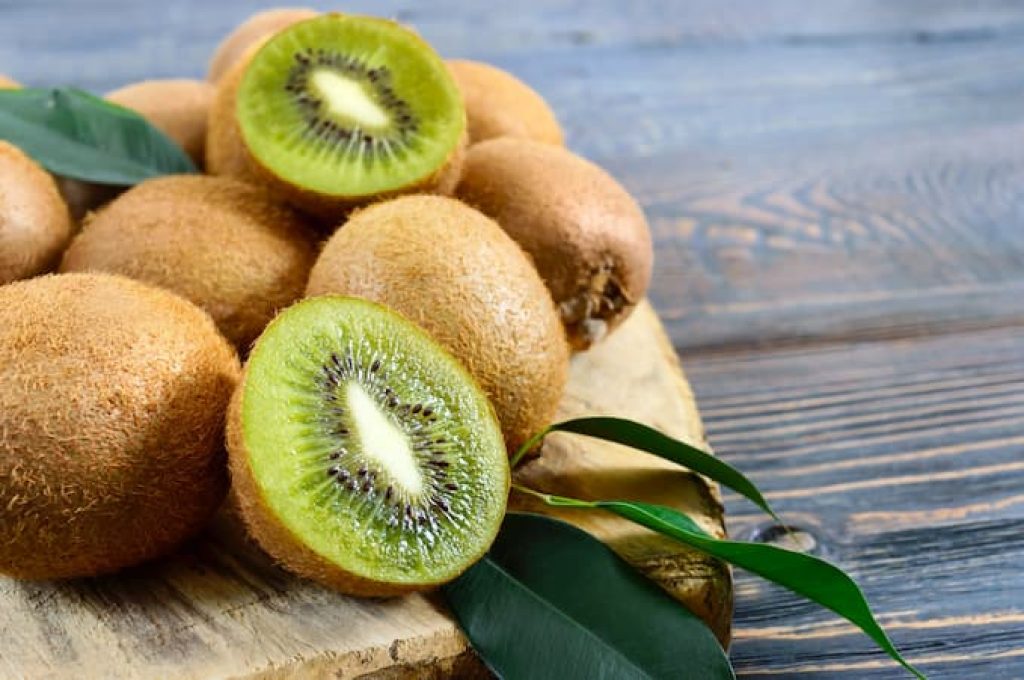
Kiwi fruit, also known as Chinese gooseberry, is a small fruit with a fuzzy brown exterior and green flesh with black seeds. It has a tart taste and is often enjoyed when ripe and firm.
The kiwi fruits are rich in vitamins C and K, fiber, and antioxidants, making it a healthy addition to any diet. It is also low in calories, making it a great snack option for those watching their weight.
When selecting ripe kiwis here, it is important to choose ones with a firm texture and unbruised skin. Kiwis that are too soft or have bruises may be overripe and not as flavorful.
While kiwi fruit is generally safe for consumption, it is important to note that some people may have an allergic reaction to it. Symptoms of a kiwi allergy may include itching, swelling, and difficulty breathing. It is recommended that parents wait until their child is at least 6 months old before introducing kiwi into their diet, and to monitor them closely for any signs of an allergic reaction.
Nutritional Value of Kiwi
Kiwi is a nutritious fruit that is packed with essential vitamins, minerals, and antioxidants. This section will highlight some of the key nutrients found in kiwi and how they can benefit babies.
Kiwi is an excellent source of vitamin C, which is essential for maintaining a healthy immune system. A single kiwi fruit contains more than the daily recommended intake of vitamin C. This makes it an excellent choice for babies who are still building their immune systems.
In addition to vitamin C, kiwi is also rich in other vitamins, such as vitamin K, vitamin E, and vitamin A. These vitamins play a crucial role in maintaining healthy bones, skin, and eyesight.
Kiwi is also a good source of potassium, which is essential for maintaining healthy blood pressure levels. This mineral is also important for babies’ growth and development.
Antioxidants are another essential component of kiwi. These compounds help protect the body against oxidative stress, which can lead to various health problems. Kiwi contains antioxidants such as vitamin C, vitamin E, and carotenoids, which help protect babies’ cells from damage.
Kiwi is also low in calories and fat, making it an excellent fruit for babies who are trying to maintain a healthy weight. It is also high in fiber, which can help regulate digestion and prevent constipation.
Finally, kiwi is a good source of iron, calcium, folate, copper, and magnesium. These minerals play a crucial role in maintaining healthy blood, bones, and muscles.
Overall, kiwi is a nutritious fruit that can provide babies with a wide range of health benefits.
Kiwi for Babies: When to Introduce
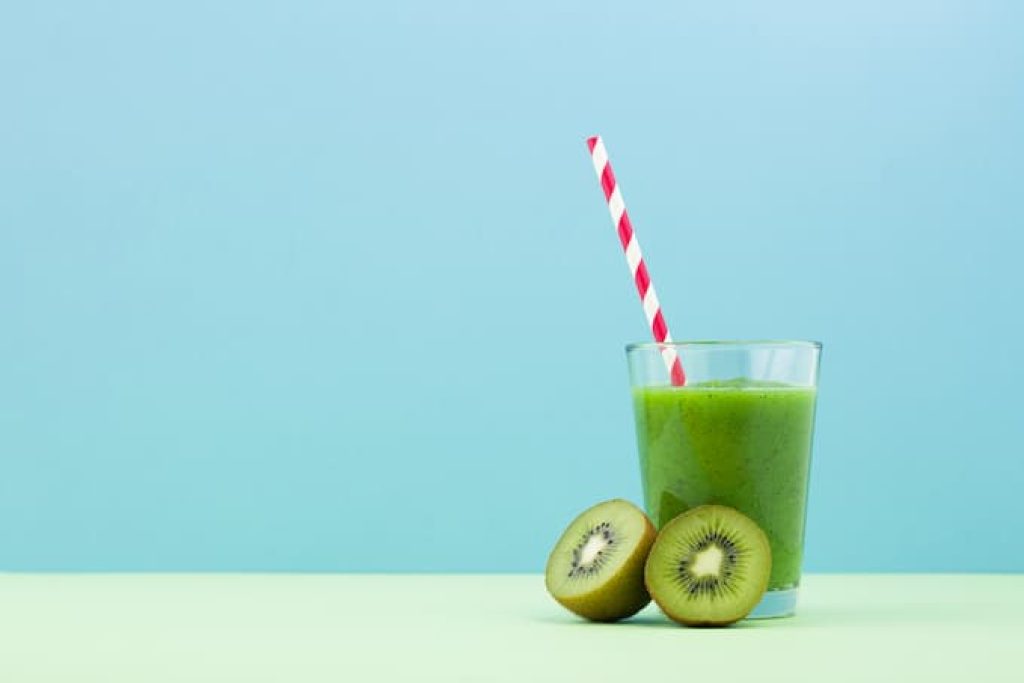
Kiwi is a delicious fruit that is packed with nutrients. Many parents wonder if it is safe to feed kiwi to their babies. The good news is that kiwi can be a healthy addition to a baby’s diet when introduced at the right time and in the right way.
When Can Babies Eat Kiwi
According to the American Academy of Pediatrics, babies can start eating solid foods around 6 months of age. However, it is important to introduce new foods one at a time and wait a few days before introducing another new food. This allows parents to watch for any signs of an allergic reaction or other issues.
Kiwi is considered a low-allergen food, but it is still important to introduce it slowly and watch for any signs of an allergic reaction. Some signs of an allergic reaction in babies include:
- Hives
- Swelling of the face, lips, or tongue
- Vomiting
- Diarrhea
- Difficulty breathing
Preparing Kiwi for Babies
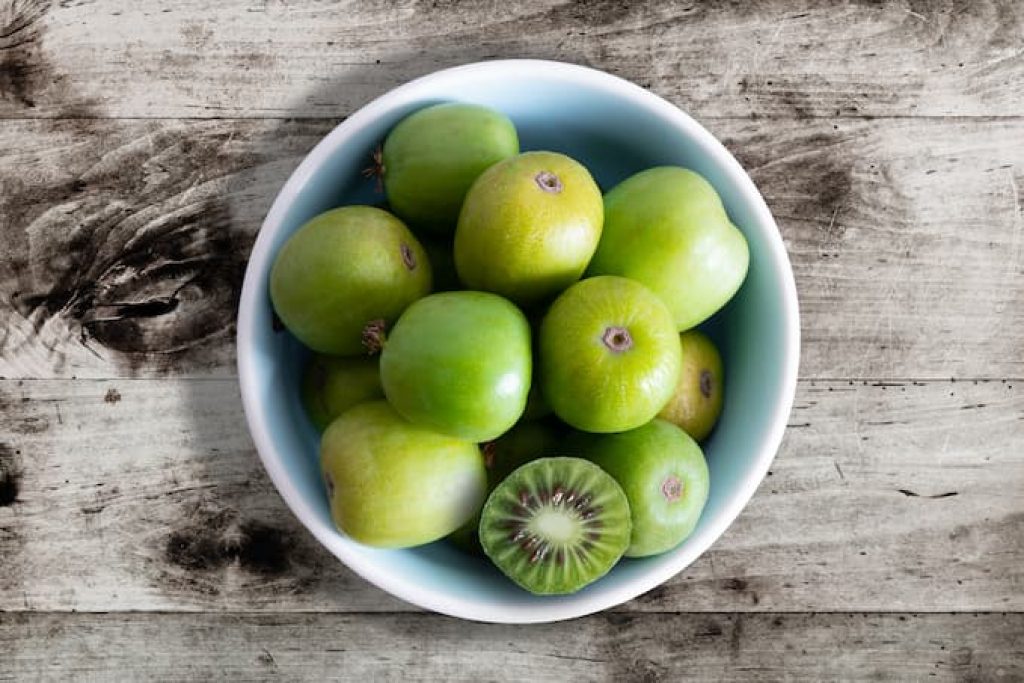
When introducing kiwi to babies, it is important to prepare it in a way that is safe and easy for them to consume. Here are some tips on how to serve kiwi for babies:
Peel the Kiwi
To prepare kiwi for babies, it is recommended to peel the kiwi skin. The fuzzy skin of the kiwi can be difficult for babies to digest and can also be a choking hazard. Use a vegetable peeler or a sharp knife to remove the kiwi skin.
Puree the Kiwi
After peeling the kiwi, it can be pureed to make it easier for babies to consume. Use a blender or food processor to puree the kiwi until it is smooth. Adding a small amount of water can help make the first serve kiwi puree smoother and easier for babies to swallow.
Remove the Seeds
It is important to remove the seeds from the kiwi before pureeing it for babies. The seeds can be a choking hazard and can also be difficult for babies to digest. Use a small spoon or knife to scoop out the seeds before pureeing the kiwi.
Use Soft Kiwi
When preparing kiwi for babies, it is best to use soft kiwi that is ripe and easy to puree. Hard or unripe kiwi can be difficult to puree and may not be as sweet and flavorful as ripe kiwi.
Kiwi Puree Ingredients
To make kiwi puree for babies, all you need is half a cup of ripe kiwi and a small amount of water. Avoid adding any sweeteners or other ingredients, as these can be harmful to babies.
By following these tips, parents can safely introduce kiwi to their babies and provide them with a delicious and nutritious fruit that is packed with vitamins and minerals.
Mixing Kiwi with Other Foods
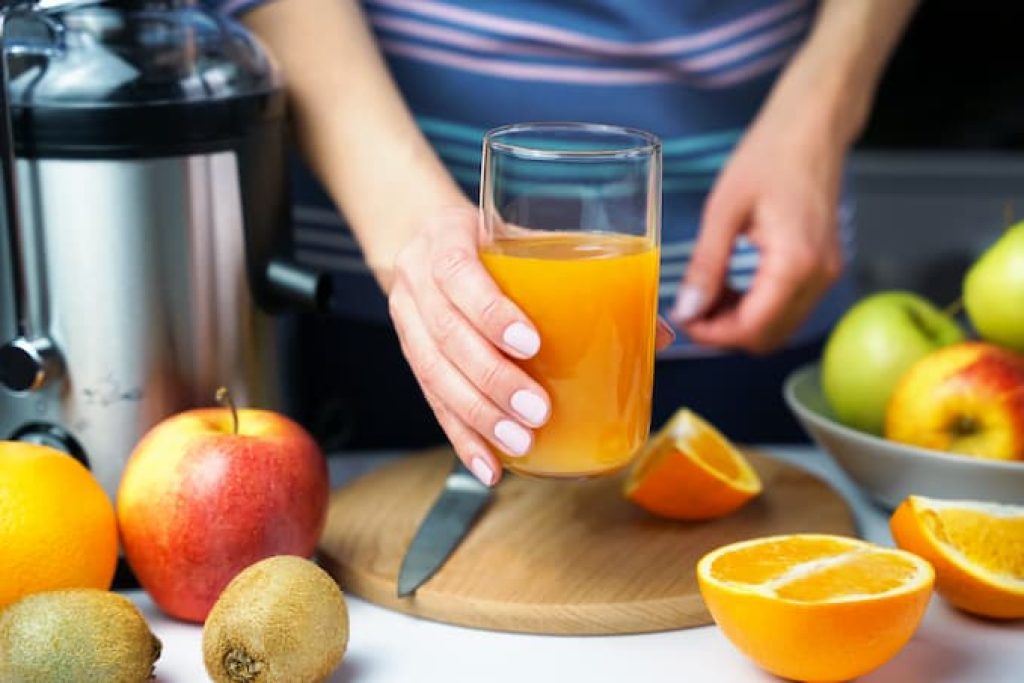
When introducing kiwi to a baby’s diet, it is important to consider mixing it with other foods to create a balanced meal. Kiwi pairs well with a variety of fruits, such as bananas, apples, mangoes, and pears. You can blend kiwi puree combinations with these fruits into a delightful and nutritious fruit puree, serving as an excellent meal for your baby.
Another great option for mixing baby kiwi in with other foods is to add it to avocado or banana puree. These two fruits are high in healthy fats and can help your baby feel full and satisfied. Yogurt and applesauce are also great options for mixing with kiwi, as they add a creamy texture and a subtle sweetness to the meal.
For parents looking for more creative ways to incorporate kiwi into their baby’s diet, there are many delicious kiwi recipes available online. One popular option is kiwi salad, which combines chopped kiwi with other fruits and vegetables, such as cucumber, tomato, and red onion. This salad is a great way to introduce your baby to new flavors and textures while providing them with important nutrients.
Overall, when mixing kiwi with other foods, it is important to ensure that the meal is balanced and provides all of the necessary nutrients for your baby’s growth and development. By combining fresh kiwi recipes with a variety of fruits, purees, and other ingredients, parents can create delicious and nutritious meals that their baby will love.
Storage and Selection of Kiwi
When it comes to storing and selecting kiwi, there are a few key things to keep in mind to ensure that the fruit remains fresh and flavorful.
Selecting Fresh Kiwi
When selecting kiwi, it’s important to choose fruit that is firm but slightly yielding to the touch. Avoid kiwis that are too soft or too hard, as these may be overripe or underripe, respectively. The skin should be smooth and free of blemishes, and the fruit should have a sweet, slightly tangy aroma.
Storing Kiwi in the Refrigerator
If you want to extend the shelf life of your kiwi, you can store it in the refrigerator. Simply place the fruit in a plastic bag and seal it tightly, then place it in the crisper drawer of your fridge. Kiwis stored in the refrigerator can last for up to two weeks.
Potential Allergies and Reactions

Kiwi is a healthy fruit that can be introduced to babies once they start eating solids. However, it is important to note that some babies may develop an allergic reaction to kiwi.
Allergy to kiwi is rare, but it can happen. The symptoms of an allergic reaction to kiwi may include wheezing, swelling, itching, sore mouth, vomiting, and breathing difficulties. In some cases, the reaction can be severe and life-threatening, requiring immediate medical attention.
It is important to note that kiwi allergy can also be associated with latex allergy and hay fever. Some people who are allergic to latex may also be allergic to kiwi because of the proteins present in both. Similarly, people with hay fever may also be more likely to develop an allergic reaction to kiwi.
If a baby shows any signs of an allergic reaction after eating kiwi, it is important to stop feeding them the fruit and seek medical attention immediately. In some cases, a baby’s reaction may be mild, but it is still important to monitor them closely and seek medical attention if necessary.
In conclusion, while kiwi is generally safe for babies to eat, there is a risk of an allergic reaction. Parents should be aware of the symptoms of an allergic reaction and seek medical attention if their baby shows any signs of a reaction.
Benefits of Kiwi for Babies
Kiwi is a nutritious fruit that can offer several benefits to babies. Here are some of the advantages of including kiwi in a baby’s diet:
Rich in Nutrients
Kiwi is an excellent source of several essential nutrients that are vital for a baby’s growth and development. It contains vitamins C, E, and K, as well as potassium, calcium, and fiber. These nutrients can help support a baby’s digestive system, strengthen bones, and boost immunity.
Great Baby Food
Kiwi is a versatile fruit that can be easily mashed or pureed, making it an ideal food for babies. Its soft texture and mild taste make it an excellent option for introducing new foods to a baby’s diet. Kiwi can be mixed with other fruits or used as a topping for cereal or yogurt.
Boosts Immune System
Kiwi is rich in vitamin C, which can help boost a baby’s immune system and protect against illnesses. It also contains antioxidants that can help fight off harmful free radicals in the body.
Alkaline and Low Acidic
Kiwi is an alkaline fruit, which means it can help balance the pH levels in a baby’s body. It is also low in acid, making it a suitable food for babies who are prone to acid reflux.
Helps with Constipation
Kiwi is high in fiber, which can help regulate a baby’s bowel movements and prevent constipation. It can also help soften stools and make them easier to pass.
May Prevent Diaper Rash
Kiwi contains enzymes that can help break down proteins and reduce inflammation in the body. This may help prevent diaper rash and other skin irritations in babies.
Supports Immunity
Kiwi is rich in vitamin E, which can help support a baby’s immune system and protect against infections. It also contains folate, which is essential for healthy cell growth and development.
In summary, kiwi is a nutritious and beneficial fruit that can offer several advantages to babies. It is a great baby food, rich in nutrients, boosts the immune system, helps with constipation, and may prevent diaper rash.
Conclusion
In conclusion, kiwi can be a healthy addition to a baby’s diet, as long as it is introduced at the right time and in the right way. Parents should always consult with their pediatrician before introducing any new food to their baby’s diet.
When it comes to safety, kiwi is generally considered safe for babies to eat. However, parents should be aware that kiwi can be a common allergen, so they should watch out for any signs of an allergic reaction, such as hives, swelling, or difficulty breathing.
In terms of taste, babies may find kiwi to be a bit tart or sour. It may be helpful to mix it with other fruits or puree it to make it more palatable.
If parents are concerned about organic kiwi, they can choose to buy organic varieties. However, it is important to note that conventionally grown kiwi is still safe for consumption.
Frequently Asked Questions
What is the appropriate age to introduce kiwi to a baby?
According to pediatricians, kiwi can be introduced to babies who are at least six months old. At this age, babies can start consuming solid foods. However, it is important to consult with a pediatrician before introducing kiwi to a baby, especially if the baby has any allergies or medical conditions.
Is it safe for babies to eat kiwi with seeds?
It is generally safe for babies to eat kiwi with seeds. However, the kiwi seeds can be a choking hazard for babies, especially if they are not finely chopped or mashed. It is recommended to remove the kiwi seeds before feeding kiwi to a baby.
Can babies digest kiwi easily?
Kiwi is a rich source of fiber, which can aid digestion. However, babies may have difficulty digesting kiwi if they are introduced to it too early or if they consume too much of it. It is important to introduce kiwi slowly and in small amounts to avoid any digestive issues. If a baby experiences any discomfort or digestive problems after consuming kiwi, it is recommended to consult with a pediatrician.



